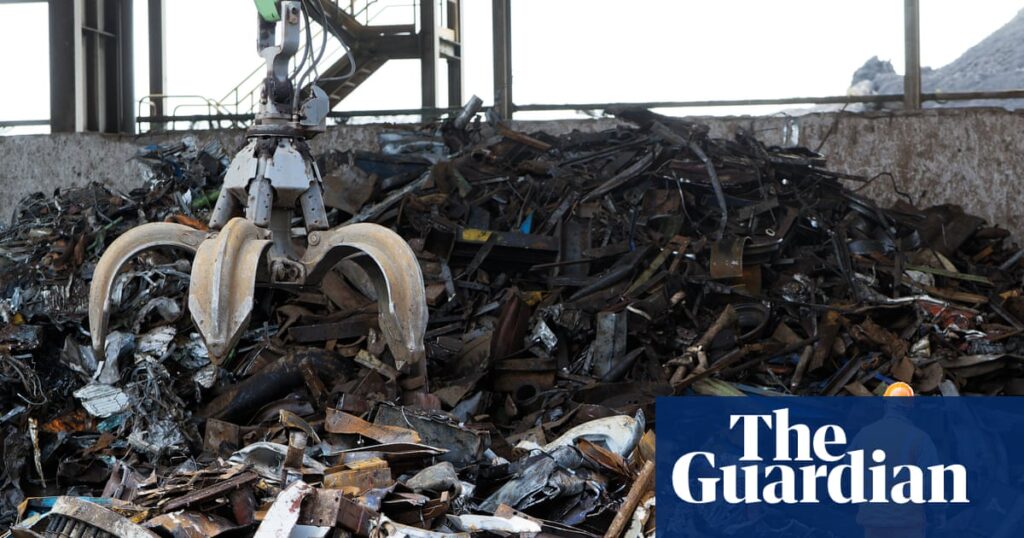Metals recyclers are at loggerheads with the British steel industry over a call to limit lucrative scrap exports so steel can be reused by UK furnaces.
The British Metals Recycling Association (BMRA) claims a ban on scrap steel exports to less wealthy countries could cost £5bn in lost economic activity and as many as 20,000 jobs. Steelmakers in the UK are keen to retain the metal to melt down into new steel.
The bulk of the 5.6m tonnes of steel made in the UK in 2023 was made in Port Talbot and Scunthorpe, in carbon-heavy blast furnaces that rely on iron ore dug from the ground. However, both sites are expected to upgrade to much cleaner electric arc furnaces (EAFs), which use greener technology to melt scrap and produce steel.
Currently, four-fifths of the UK’s scrap steel – from old cars, buildings and bridges – is exported via scrap yards and is often melted down in EAFs overseas.
However, UK Steel, a lobby group, has called for the government to limit this trade as it expects demand for scrap will surge by 70% as early as 2027 as Port Talbot, owned by Indian conglomerate Tata Steel, switches on its new EAF. The group forecasts demand will then triple by 2050 compared with 2023 levels.
UK Steel has asked ministers for limits on exports to countries outside the Organisation of Economic Cooperation and Development (OECD). Members of this bloc of wealthier countries can “demonstrate their ability to treat waste sustainably”, it says.
However, at the moment four of the top five destinations for UK scrap metal are non-OECD countries, according to the BMRA. In practice, many poorer economies would be unlikely to be able to prove environmental credentials.
An analysis for the BMRA by academics at Sheffield Hallam University said such limits could cause gross value added (GVA) from the recycling to halve.
James Kelly, the BMRA’s chief executive, said limiting exports “wouldn’t just cut tonnage – it would erode the fundamental economics that sustain the sector in a globally competitive environment”.
“Exports are the lifeblood of the UK metals recycling industry and global demand for recycled steel is set to rise dramatically,” he said. “Curtailing exports would be shortsighted and could see the UK miss out on significant growth for an already large industry that currently directly employs over 15,000 people and delivers £9bn GVA per annum.”
after newsletter promotion
Prof Will Eadson, a professor of urban and regional studies at Sheffield Hallam University, said: “Careful thought must be given to any measures which seek to restrict overseas trade – we can see clearly how quotas and bans may lower exports, but at a cost to the overall value of the sector.”
A UK Steel spokesperson said its proposals would “secure the higher quality and greater volumes of steel scrap needed for the UK’s journey to net zero steelmaking”.
“At no point have we called for a ban on steel scrap exports,” they said. “Free and fair trade is a cornerstone of the UK steel industry. What is needed is a proportionate system of environmental regulation to ensure that wherever UK scrap is exported, it is processed to the same high standards we uphold here.”

